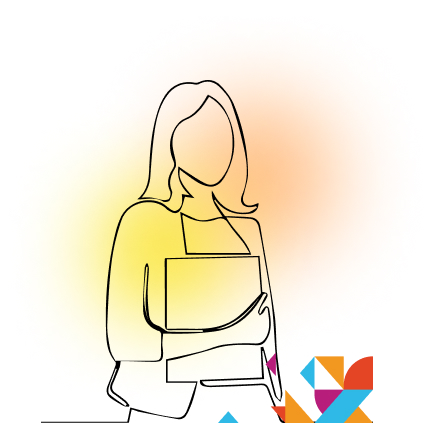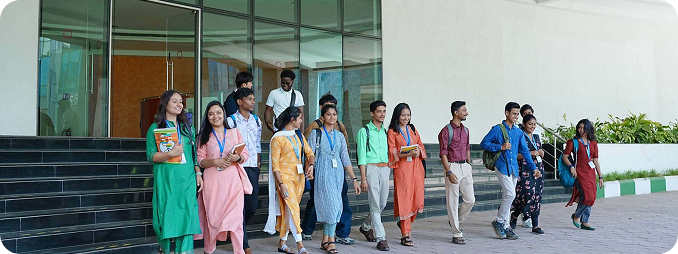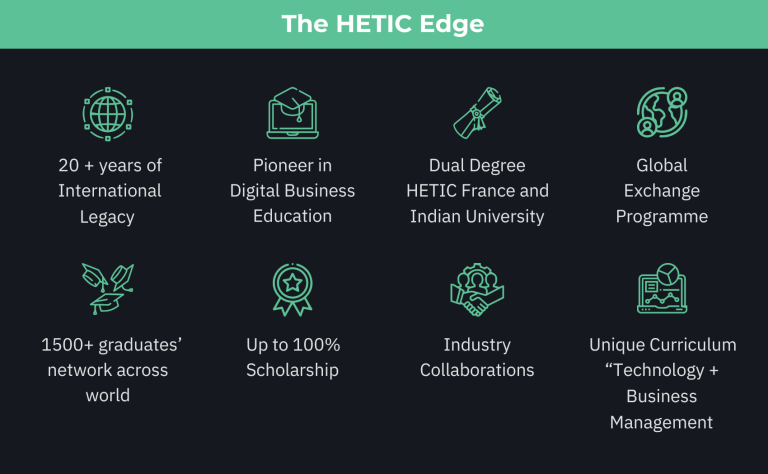Master The Future with an MSc in Computer Science from S-VYASA
The Master of Science in Computer Science (MSc CS) programme is a two-year postgraduate course designed to propel graduates to the forefront of the ever-evolving IT industry. This intensive programme cultivates a deep understanding of computer software development's theoretical foundations and practical applications. Structured across four terms, the programme equips students with a robust knowledge base and practical skillset relevant to the latest IT trends. Graduates emerge well-positioned for diverse, high-demand careers such as software development, systems analysis, database administration, web application development and IT consultancy. The MSc CS programme's emphasis on in-depth computer science principles and their practical applications prepares students for success in various technical, analytical and strategic positions within technology-driven industries. This makes the MSc CS programme highly valuable in fields requiring a profound understanding of computing and its applications.
Admission Eligibility
Candidates who have completed three years of Bachelor’s degree in BCA or BSc Computer Science from any recognised University under the UGC or its Equivalent from any Foreign Universities are eligible for admission.
Hostel Facilities & Transportation Available
PROGRAMS
Elevating learning with a focus on innovation
The Master of Science - Computer Science (MSc-CS) Programme at S-VYASA Global City Campus (Deemed-to-be University) offers various specialisations from which aspiring students can choose. Following Programme Specialisations are available
Programme Highlights
The M.SC. CS programme offers a thorough curriculum in computer science fundamentals, including programming languages, data structures, algorithms and more. With five specialisations available, students can customise their learning to match their interests and career objectives.
Hands-on Learning:
Practical learning is a crucial aspect of M.SC. CS programmes. Learners take part in laboratory sessions, workshops, and experiential training to apply theoretical knowledge to real-world scientific problems.
Innovative Pedagogical Practices:
The university prioritises innovative learning, blending technology, management, and wellness programmes like yoga. This approach utilises modern teaching methods such as experiential learning and practical experience (practicum).
Globally Acclaimed Certifications and Faculty:
The programme is integrated with Global Certifications from the HETIC School of Digital Leadership, Paris and taught by skilled faculty and renowned educators from IITs, IIMs, NITs, and Global Universities.
Industry-Relevant Skills through Certifications:
The programme integrates industry-recognised certifications from powerhouses like Google, Python Institute, MongoDB, Salesforce, and more, giving you a competitive edge in the job market.
Industry and Academia Collaboration:
A strong industry-academic network enriches the MSc CS programme with input from institutions like IITs, IIMs, NITs, and global universities, ensuring alignment with industry trends.
Holistic Development:
This programme develops technical expertise and essential soft skills like teamwork, communication, and ethics. It includes yoga and wellness practices to enhance overall well-being.
Projects and Internships:
The M.SC. CS programme includes project work and internships, reinforcing theoretical knowledge and providing industry exposure to real-world challenges.
Professional Development:
The programme includes workshops, seminars, and training sessions on communication, teamwork, leadership, and ethics to enhance soft skills and professionalism.
Global Perspective:
We offer international exchange programmes, study-abroad opportunities, and collaborative research projects, preparing students for success in a multicultural workforce.
Curriculum and Programme Inclusions
M.SC. - CS with specialisation consists of four (4) terms spread over two (2) years. The curriculum is designed to provide a balanced mix of theoretical knowledge and practical skills. Some of the key subjects covered in the curriculum include:
- Semester 1: Data Structures and Algorithms (using C), Computer Organisation and Architecture, Mathematics, Object-Oriented Programming using C++, Value Added Courses and Multidisciplinary Courses
- Semester 2: Java Programming, Web Technology, Numerical Methods, Operating Systems, Designs and Analysis of Algorithms, IT Workshop – (Sci Lab/MATLAB), Foundation courses in Specialisations, Value Added Courses and Multidisciplinary Courses
- Semester 3: Advanced Java Programming, Mobile Application Development, Software Testing, Entrepreneurship Development, Specialisation Courses in Cloud Computing and DevOps / Cybersecurity and Ethical Hacking / Artificial Intelligence and Machine Learning / Data Science / Big Data Analytics / Internet of Things
- Semester 4: Specialisation Courses, Specialisation Electives, Project Work, Placement Readiness Programme, Internship and Placements
Career Opportunities
Software Developer/Engineer:
Design, develop, and maintain software applications, ensuring functionality and performance to meet user needs.
Data Scientist/Data Analyst:
Analyze complex data sets to extract insights, create predictive models, and support data-driven decision-making.
Database Administrator/Database Architect:
Manage and optimize databases, ensuring data integrity, security, and efficient storage solutions.
System Analyst:
Evaluate business processes and IT systems, identifying solutions to improve efficiency and functionality.
Network Administrator / Network Engineer:
Design, implement, and maintain network infrastructure, ensuring reliable and secure communication systems.
Cybersecurity Analyst:
Protect computer networks and systems from cyber threats by analyzing vulnerabilities and implementing security measures.
Technical Support Engineer:
Provide troubleshooting and support services for software, hardware, and network-related issues.
Quality Assurance Analyst:
Test and evaluate software applications to ensure they meet quality standards and performance requirements.
Project Manager:
Plan, execute, and oversee technology projects, ensuring timely delivery and alignment with business goals.
Entrepreneur:
Develop and launch innovative technology-based businesses, managing product development and market strategies.
Web Developer:
Build and maintain websites and web applications, ensuring functionality, responsiveness, and user experience.
Mobile Application Developer:
Develop and optimize mobile applications for Android and iOS platforms, focusing on user engagement and performance.
Cloud Engineer/DevOps Engineer:
Design, deploy, and maintain cloud-based infrastructure and automation processes for scalable applications.
AI/Machine Learning Engineer:
Develop and train AI models, implementing machine learning algorithms to solve complex problems.
Penetration Tester:
Conduct security assessments and ethical hacking to identify and mitigate vulnerabilities in IT systems.
Research Scientist:
Engage in cutting-edge research in computer science, developing innovative technologies and solutions.
Programme Outcomes
Master of Science - Computer Science (M.SC. - CS) focuses on Knowledge, Skills and Abilities that students are expected to attain by the time they complete the programme. The Programme Outcomes are designed to reflect the goals of the programme and ensure that learners are well-prepared for the demands of the industry.
- Apply skills to identify, formulate, and solve complex technology problems using critical thinking, analytical reasoning, and innovative approaches.
- Apply mathematical and scientific principles to technology solutions.
- Demonstrate the ability to design, analyze, and implement technology systems, components, or processes to meet specified requirements.
- Consider factors such as safety, sustainability, ethics, and economic constraints in technology solutions.
- Analyse the use of modern technology tools, software, and technologies relevant to their field of study.
- Be adept at utilizing computer-aided tools, simulation, modeling, and analysis tools for technology design and analysis.
- Develop hands-on experience in conducting experiments, collecting data, analyzing results, and drawing conclusions in laboratory and field settings.
- Be competent in using laboratory equipment, instrumentation, and techniques applicable to their discipline.
- Communicate effectively, both orally and in writing, with technical and non-technical audiences.
- Prepare clear and concise technical reports, presentations, and documentation.
- Collaborate effectively with multidisciplinary teams.
- Demonstrate the ability to work collaboratively as part of a team, including effective communication, coordination, and conflict resolution skills.
- Exhibit leadership qualities, such as initiative, accountability, and the ability to motivate and inspire others.
- Adhere to ethical principles and professional standards in their technology practice, demonstrating integrity, honesty, and respect for diversity.
- Understand the social, cultural, environmental, and global impact of engineering solutions and strive to uphold ethical conduct in their professional activities.
- Recognise the importance of lifelong learning and professional development in maintaining currency with advances in technology, industry trends, and emerging best practices.
- Engage in continuous self-improvement, pursue further education, and seek opportunities for career advancement and specialisation.
- Recognise their role and responsibility as technocrats in addressing societal challenges and promoting sustainable development.
- Consider the social, environmental, and economic implications of their technology decisions.
- Strive to contribute positively to society and the environment through their work.
LEARNING AND CERTIFICATION FROM PARTNERS

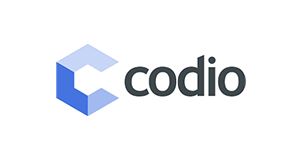



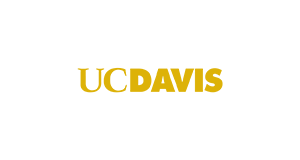






Integrated Global Certification
HETIC School of Digital Leadership, part of the Galileo Group in Paris since 2002, has been at the forefront of developing management programs in the digital field for over 20 years. Sensing the future impact of the digital sector, HETIC created a unique curriculum that seamlessly blends technical, design, and business aspects, preparing students to lead organizations through digital transformation. The institute produces future leaders and managers equipped to thrive and grow in a dynamically changing digital landscape.
* 98% of HETIC students are hired before the end of their studies
List of companies where M.SC. CS students with specialisation are placed


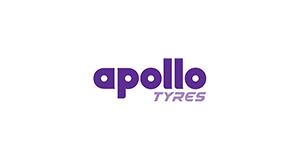










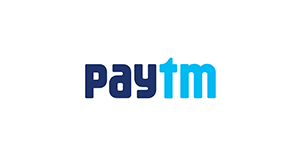


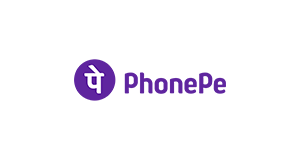



.jpg)
